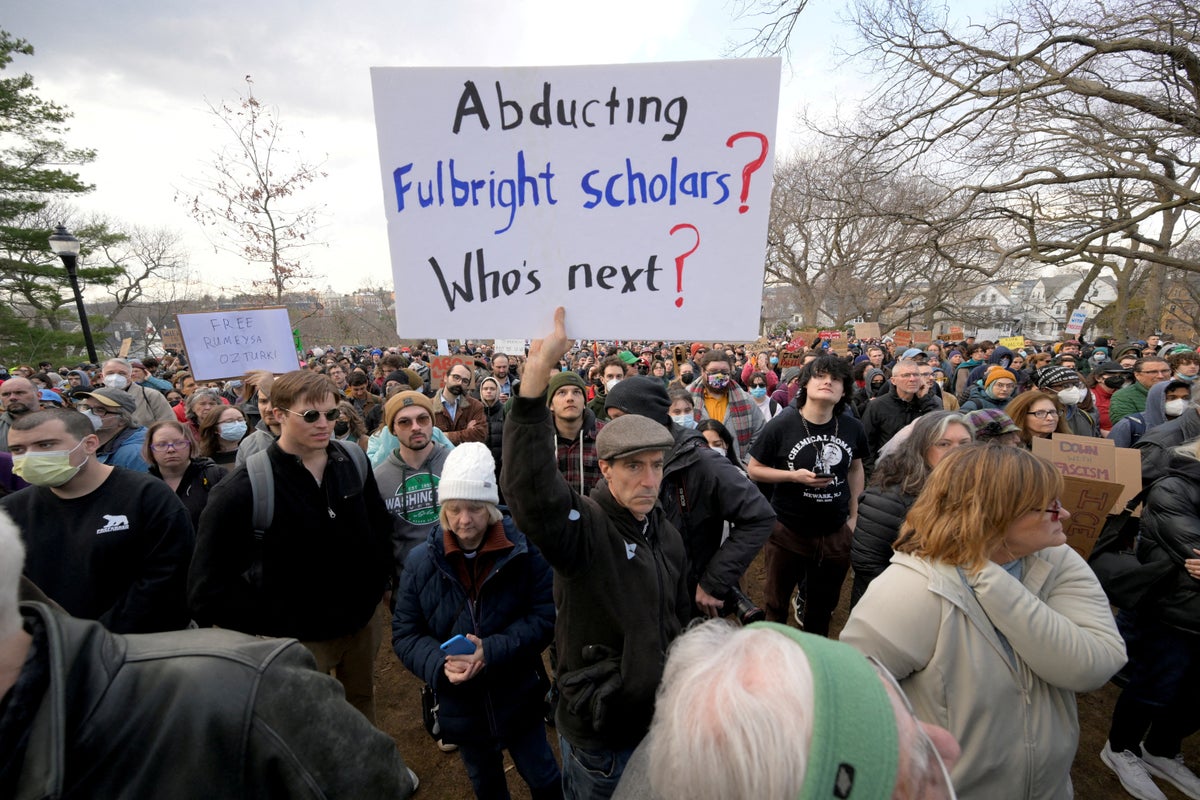A federal judge has rejected a request from Donald Trump’s administration to throw out a Tufts University doctoral student’s legal challenge to her arrest and imprisonment.
Turkish student Rumeysa Ozturk — who is currently imprisoned in a Louisiana detention center where several other international students are detained — was arrested outside her apartment in Massachusetts after masked and hooded plaint-clothes immigration agents grabbed her off the street.
On Friday, District Judge Denise Casper agreed to move her case to Vermont, where she was when her lawyers initially petitioned the court for her release. Her attorneys have argued that Immigration and Customs Enforcement deliberately and secretly moved her case into another jurisdiction where the Trump administration would have a more favorable outcome.

Friday’s decision “sends a clear message that the government cannot manipulate jurisdiction in order to target human rights defenders, in violation of their First Amendment rights,” Ozturk’s attorney Mahsa Khanbabai said in a statement.
“Let’s be clear: Rümeysa should never have been arrested or detained by ICE in the first place,” she said. “What matters most right now is our continued fight to ensure her immediate release and safe return home.”
The decision followed a court hearing in Boston, where Department of Justice lawyers urged the judge to dismiss the challenge and allow the administration to deport her from the United States.
Ozturk — among several international students targeted for removal from the country for their Palestinian advocacy — has not been accused of a crime, and the government’s only apparent evidence against her is her op-ed criticizing Israel in a student newspaper.
She is working toward her doctorate at the Eliot-Pearson Child Study and Human Development at Tufts University’s Graduate School of Arts and Sciences. She received her master’s degree in developmental psychology from Teachers College at Columbia University, where she was a Fulbright scholar.
Federal agents arrested Ozturk outside her apartment on March 25 while she was on her way to an Iftar dinner to break her Ramadan fast with friends. The administration later said her student visa was revoked.
Her family, friends and attorneys did not know where she was being held for nearly 24 hours after her arrest. Attorneys argue that federal authorities appear to have deliberately shuffled her around to keep her whereabouts secret.
Following her arrest, a separate federal judge ordered that Ozturk could not be moved outside the state without at least 48 hours of advance notice to the court. But within a day after her arrest, she was in Louisiana.
The government chose to “ignore the order” after “secretly whisking her away and making sure no one knew where she was,” ACLU of Massachusetts attorney Adriana Lafaille told Judge Casper on Thursday.
Assistant U.S. Attorney Mark Sauter said moving Ozturk was “already set in place” before the order.
“The language of the order says ‘do not move outside Massachusetts’ which does not affect a situation when the person is already outside of Massachusetts,” he said.
Ozturk’s case will be moved before Vermont District Judge William Sessions III, a former chair of the US Sentencing Commission who was appointed to the bench by Bill Clinton.

